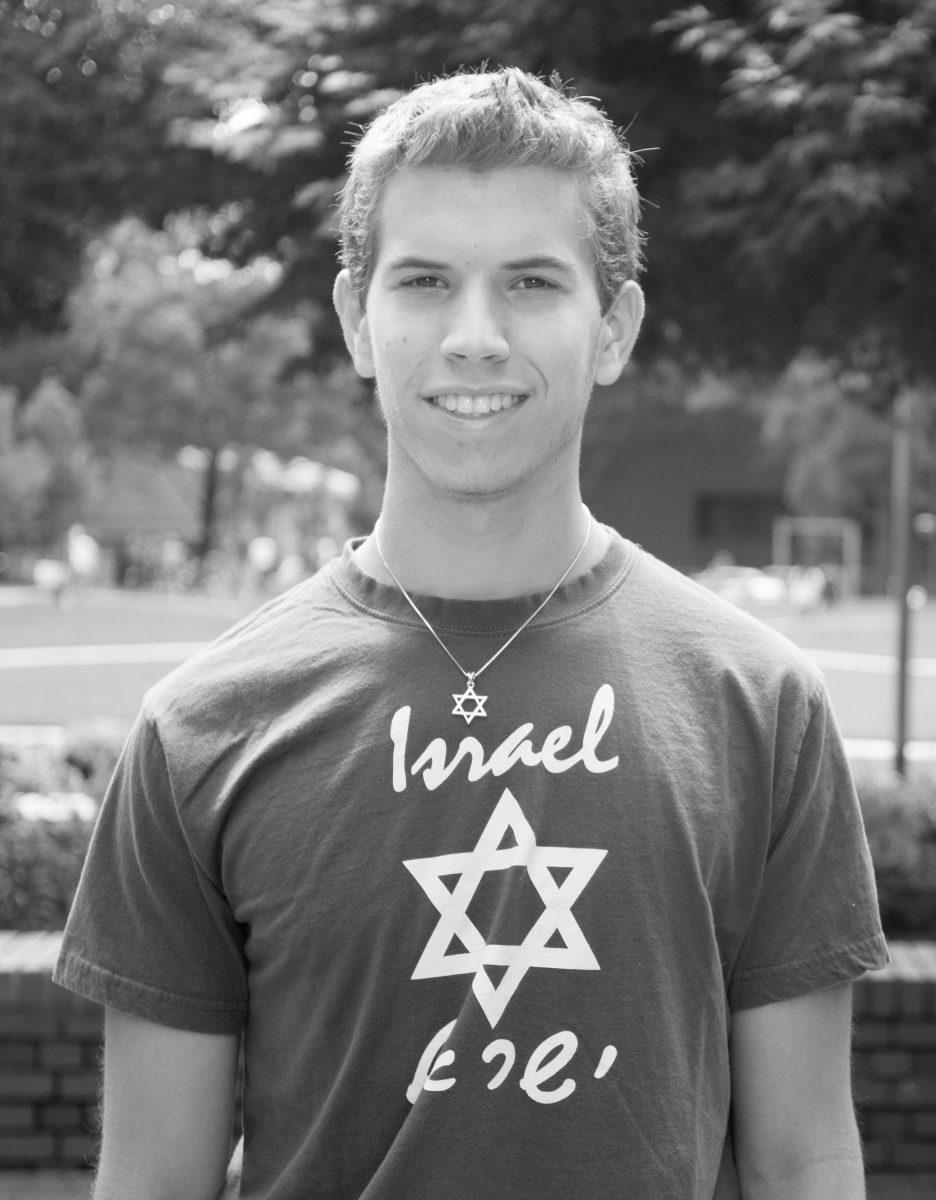When First Year College Freshman Jeremy Mason applied to go on an all-expense paid trip to Israel, he did not know he would arrive during the height of a political struggle between Israel and Palestine.
The trip lasted from July 28 to Aug. 8 and included sightseeing, lectures and religious activities, Mason said.
Birthright Israel funded Mason’s 10 day trip in addition to the more than 400,000 other trips the organization paid for since 1999. According to its website, the organization aims to “strengthen Jewish identity, Jewish communities and solidarity with Israel” for non-Israeli Jews.
Mason said he heard about the trip from his cousin, who went on the trip previously, and saw it as an opportunity to see Israel firsthand.
“I just really wanted to experience it and go see a lot of the sites there, and it was a great deal for a free trip,” Mason said.
On one of his excursions, he visited historic Mount Masada where, in Jewish history, several Jews committed suicide after a Roman siege, Mason said. Whether the event actually took place remains questionable, according to Mason, though he did see the remnants of a catapult while there.
He also prayed at the Western Wall to observe Shabbat, the Jewish day of rest, which takes place from Friday to Saturday night and leaves no cars in the streets of Israel.
Other activities included a stroll through the old city of Jerusalem, a visit to the Holocaust Museum, camping with Bedouins in the desert and swimming in the Dead Sea.
However in the midst of his cultural experience, Mason witnessed a political movement too, as part of his itinerary included guest lectures from Israeli Defense Forces soldiers and former Assistant Advisor to the Prime Minister on counter terrorism, Sheldon Shulman.
According to Mason, Shulman spoke of his discontent with how Western media portrayed the conflict in Gaza.
“He was thinking that a lot of the media makes it seem like Israel is the bad guy killing a lot of civilians in Gaza and Palestine’s children and families,” Mason said. “He was telling us Hamas usually sets up a lot of their rockets in sites like schools and hospitals and whatnot, so Israel doesn’t have much of a choice.”
Hamas and others in Gaza deny these claims, but even if they did hold true, the Geneva Conventions state they still must avoid bombing civilian areas, according to The Guardian.
Not all Jews share Shulman’s political viewpoint either, leaving some questioning Birthright Israel’s educational approach.
“We are non-Israeli Jews who oppose the program because it promotes and supports Israel’s ongoing colonialism and apartheid policies and marginalizes Jewish experiences in the diaspora,” stated Aviva Stahl, Sarah Woolf and Sam Elliot Bick in the opinion column As Jews we say “Birthright” trips must end.
Eighteen to 26-year-olds may apply multiple times to the program, meaning almost all eligible Jews who continue to apply tend to eventually receive the free trip, according to Mason. In 2011, the Israeli government said it would give 100 million to the organization so more Jews could participate, according to the organization’s website.
Before the trip, Mason said he did not know much about the politics of the region and did not imagine the amount of soldiers he would see on the streets.
“The only thing that really surprised me was a lot of soldiers walking around with M16s on their necks, which is kind of a weird thing to get used to,” Mason said. “I didn’t realize it was to that extent.”
In Israel, all citizens must join the army after age 18.
“….A lot of people here view that as not really fair, but all five guy and girl [soldiers] said that’s something that they wanted to do, but they didn’t necessarily want to, but now that they’re in it they’re definitely proud of it.” Mason said.
According to Mason, dead soldiers at the National Cemetery also moved him.
“…We got to the new section and there were just piles of sand because of the new soldiers who died in Gaza and they didn’t have time to actually bury them yet, so they were just kind of covered in sand and that was definitely wild to see even if you didn’t know the people,” Mason said.
As of Wednesday, 67 Israelis have died in the fighting compared to the more than 2000 Gazans killed since the start of Israel’s Operation Protective Edge July 8, according to CNN.
Aside from the soldiers, though, Mason said he did not see the “danger” of Israel he so often saw on the news.
“[The media] always mentions how many rockets are going into Israel, but the amount that have actually hit Israel is, I think, less than 10,” Mason said. “They shoot a couple hundred, but only a few of them have actually landed, and I feel like the news always says more rockets and more rockets and more rockets, but it’s really not that many. I was there for 10 days and I never heard a siren.”
Still, the organization prohibited participants from traveling to Tel Aviv and Gaza as a safety precaution, and about a third of would-be participants abstained from the trip altogether, according to Mason.
“I was skeptical of whether to go to Israel or not, because they always made it seem like Israel was a dangerous place, but I can say from when I was there it wasn’t that bad and the people who live there, you could tell weren’t even worried about living there,” Mason said. “They felt pretty comfortable.”
Overall, Mason said the trip opened his eyes and made him want to continue to inform himself about politics and other areas of the world.








